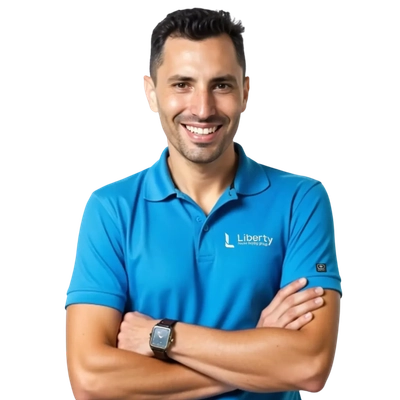Home buying resources: 25 top recommendations from homeowners
Discover the best home buying resources recommended by experienced homeowners to simplify your journey into real estate. This article shares practical insights from experts covering everything from negotiation skills and financial tools to podcasts that transform complex mortgage concepts into manageable information. These curated recommendations will help turn the overwhelming process of buying a home into clear, actionable steps for success.
- Negotiation Skills for Competitive Real Estate Offers
- Podcast Shifted Focus From House to Home
- Loan Calculator Shows Impact of Extra Payments
- BiggerPockets Podcast Builds Homebuying Confidence
- Automated Money System Accelerates Deposit Savings
- Kiyosaki Books Reshape Property as Wealth Tool
- Investor Book Teaches Math-Based Property Decisions
- Smart Homebuying Podcast Keeps Perspectives Fresh
- Tiny House Book Inspired Business Launch
- Keller Book Guides Smart Real Estate Investments
- Homeowner Guide Simplifies Complex Buying Process
- Home Inspection Guide Provides Buyer Confidence
- Dummies Guide Transforms Overwhelming Process into Steps
- Zillow Calculator Grounds Search in Financial Reality
- Small Newsletter Sparked Career-Changing Mentorship Journey
- Reddit Community Offers Real-Time Homebuying Support
- Negotiation Book Facilitates Calm Home Buying Conversations
- Energy Score Tool Reveals Future Home Costs
- Tax Guides Reveal True Cost of Neighborhoods
- Negotiation Book Transforms Emotional Process into Data
- Relatable Podcast Makes Mortgage Concepts Manageable
- Property Podcast Teaches Beyond Construction Basics
- Hormozi Podcast Reframes Homes as Working Assets
- Stoic Philosophy Calms Home Buying Stress
MORE NEWS: Phoenix bucket list: 25 things you must do
INDUSTRY INSIGHTS: Want more news like this? Get our free newsletter here
Negotiation Skills for Competitive Real Estate Offers
I absorbed every negotiation, mindset, and wealth book I could get as a kid. But for my first actual home buy, the one that really separated itself was “Never Split the Difference” by Chris Voss. I learned how to listen for what people actually meant, how to pick up on emotional hints, and how to look for innovative avenues in a negotiation instead of merely bartering over price. That ability was worth its weight in gold in real estate, particularly when offers were competitive.
In real estate, the distinction between winning and losing frequently boils down to your ability to connect, convince, and advocate for your client’s interests. I applied principles from Voss to build offers that were perceived as reasonable by sellers and appealing to my clients. It became ingrained in my agent DNA.
To this day, when I onboard new agents with Gluch Group, I have them grab that book, or better yet, listen to the audiobook, and then role-play negotiations as part of training. Because in our industry, numbers get you in the door, but relationships close deals.

Podcast Shifted Focus From House to Home
One thing that stood out from my home purchasing experience is The Life Shift podcast, specifically episodes with homeowners discussing what brought a home to feel like home, rather than a roof over their head. Hearing real people discuss how they navigated inspections, financing, negotiations, and choosing the right neighborhood helped me move past square footage and finishes. It reminded me that with real estate, it’s never really about the house; it’s about bringing stability and life transformation.
That mindset changed the way I went about purchasing homes. I was more concerned with community, with schools, walkability, and whether or not I bonded with the area, not how nice the home looked. It also aided me in setting expectations for budget, time, and maintenance costs of the home. I found out that it is always better to ask more questions initially (even hard ones) to save future headaches, whether regarding the roof’s age, underlying moisture problems, or future resale value.
As someone who assists other buyers, this type of resource is precious. It framed the way that I coach clients at Pepine Realty to understand the greater picture beyond the listing photographs. Real estate is a very personal experience; we are not just selling homes, we are leading families into foundations where memories are formed.

Loan Calculator Shows Impact of Extra Payments
I benefitted greatly from the ASIC MoneySmart home loans guide and calculators since they clearly illustrated how even small changes were impactful in terms of real dollars in the long run. For instance, on a $600,000 loan, over a 30-year term at an interest rate of 6.25 percent, the loan repayments were $3,694.30 monthly. When I added only an extra $200 to the repayment each month, the loan was reduced to under a 26-year term, saving over $114,000 in interest.
The offset calculator was similarly impressive. By keeping $20,000 in an offset account, I was able to reduce interest by about $1,250 each year. Having these numbers much clearer than what I had previously tested or estimated changed the way I approached and dealt with debt. It transformed debt decisions that were previously fuzzy into choices that directly helped drive increased control of my financial life.

BiggerPockets Podcast Builds Homebuying Confidence
The “BiggerPockets Real Estate Podcast” was a very helpful resource for me when I was buying my first home. It had a lot of information that was useful for both first-time homebuyers and experienced real estate investors. The fact that it had a lot of different episodes on topics like understanding mortgages, negotiating, evaluating neighborhoods, and managing finances during the buying process made it even more useful.
Listening to expert interviews and real-life buyer stories helped me understand many parts of buying a home that I thought were too difficult at first. For instance, a detailed episode on mortgage options helped me understand the differences between fixed-rate and adjustable-rate loans, which helped me choose the best way to finance my home. The podcast also gave me useful advice on how to deal with real estate agents and inspectors, which saved me time and potential problems in the long run.
Overall, this podcast gave me the confidence and knowledge I needed to buy a home, which helped me deal with a lot of the stress and uncertainty I was feeling at first. It also kept me motivated by sharing stories of other people who had faced similar challenges and succeeded. This made me feel more confident that I could reach my goal of owning a home.

Automated Money System Accelerates Deposit Savings
I read “The Barefoot Investor” by Scott Pape while I was in the process of looking to buy a home. Most finance books espouse the discipline of budgeting and delayed gratification. Pape did just the opposite by demonstrating how to automate money decisions so that willpower isn’t a factor. His system for dividing income into current spending, long-term savings and emergency funds lifted the psychological burden of keeping track of expenses day in and day out.
The automation strategy was effective for helping me save for my deposit in less time and without feeling like I was missing out. I had direct debits which went into separate accounts before I could spend it. I learned from the book that consistency is better than motivation, and this changed how I thought about not only saving but loan structuring and payback planning.

Kiyosaki Books Reshape Property as Wealth Tool
One book that helped me early on was Rich Dad Poor Dad by Robert Kiyosaki and later his follow-up The Real Book of Real Estate. Even though it’s written from a U.S. perspective, it completely shifted my mindset — I stopped thinking of property as just a place to live and started viewing it as a tool to build cash flow and long-term wealth. I then adapted the core principles to Europe, adding the local tax, financing, and legal details that investors here need.

Investor Book Teaches Math-Based Property Decisions
When I was first learning the ropes of buying property, one resource that stuck with me was the book The Millionaire Real Estate Investor by Gary Keller. I wasn’t looking to get rich quick, I just wanted to understand how experienced investors think about deals, risk, and long-term value. The book broke down concepts in plain English and gave me a framework for analyzing properties beyond the surface.
For example, it taught me to stop looking only at the listing price and start running the numbers—cash flow, appreciation potential, and even exit strategies. That shift in mindset helped me walk away from deals that looked good emotionally but made no sense financially. It also gave me confidence the first time I made a serious offer, because I knew my decision was based on math, not just gut feeling.
What I liked most was that it wasn’t just theory. It had real stories and examples from people who started small, just like I was. That made the process feel less intimidating. Even now, after years of buying and selling, I go back to some of those lessons. It reminded me that successful home buying is less about chasing the perfect deal and more about building a solid process you can trust.

Smart Homebuying Podcast Keeps Perspectives Fresh
The Smart Homebuying Podcast, which used to be called the First Time Homebuyer Podcast, is one that I regularly listen to and also recommend to my clients. I’ve been in real estate for nearly 15 years now, and a lot of things that may feel obvious or even cliché to me are actually brand-new or mysterious to my clients. This podcast helps me keep that perspective and remember what I need to focus on explaining.
Tiny House Book Inspired Business Launch
I owe a lot to “Living Big in a Tiny House” by Bryce Langston. I knew the basic idea behind tiny houses, but I thought they were mostly for hermits, hobbyists, and cities looking for cheap housing to help get people off the street. This book showed me just what was possible within the tiny home design framework, and it ultimately inspired me to launch my current business.
Keller Book Guides Smart Real Estate Investments
The Millionaire Real Estate Investor by Gary Keller is one of the resources that have been of immense help to me in my home-buying process. This book is a comprehensive practical guide to real estate investment which includes details from identifying the right property to investment management. It gave very useful clues on how to analyze properties and make wise investments, in addition to emphasizing the need to set goals and develop an effective business plan to enable long-term success in real estate.

Homeowner Guide Simplifies Complex Buying Process
The book “The First-Time Homeowner Survival Guide” by Sid Davis was one of the sources that proved very useful to me during my home buying journey. This book provided a full overview of the whole home purchasing process including how to find the right property, negotiation, and closing the deal. It also contained practical tips on budgeting, financing, and how to deal with possible problems during inspection and appraisal. The simplicity of the writing style employed by the author ensured that I was able to easily comprehend complicated ideas and find my way in a new environment.

Home Inspection Guide Provides Buyer Confidence
When I was buying my home, the book “The Complete Guide to Home Inspection” was a lifesaver. As someone in the remediation field, I thought I already knew what to look for, but this resource gave me a broader perspective. It highlighted common issues beyond mold, like foundation cracks and electrical concerns. Having that checklist in mind during walkthroughs gave me confidence and kept me from overlooking red flags.
The biggest benefit was peace of mind. Instead of relying solely on inspectors, I felt more equipped to ask the right questions. My advice is to read something that teaches you how to see a house through an inspector’s eyes. That perspective makes you an informed buyer.

Dummies Guide Transforms Overwhelming Process into Steps
One resource I leaned on heavily was Home Buying Kit for Dummies by Eric Tyson and Ray Brown. It’s not the most glamorous title, but it cuts straight to the point. When I started the process, I had no idea how many moving parts were involved. Mortgages, conveyancing, surveys, insurance, all of it felt overwhelming. The book broke it into manageable steps.
I used it almost like a workbook. When I reached the stage of viewing properties, I would flip to the section on inspections. It listed clear red flags to watch for, like damp, subsidence, or outdated wiring. That list alone probably saved me from making poor choices.
The mortgage chapter helped me compare different loan structures. Rather than just accepting what a broker suggested, I had enough background to ask sharper questions and negotiate better terms. It didn’t make me an expert, but it gave me the confidence to slow down and avoid rushing into a deal I didn’t fully understand.
Even after the purchase, I’ve gone back to the renovation and maintenance chapters. The guidance on planning improvements and budgeting realistically has proven just as useful. Having a structured reference like that reduced stress and gave me confidence at every stage.

Zillow Calculator Grounds Search in Financial Reality
The online resource I relied on most was Zillow’s affordability calculator. It sounds basic, but using it correctly was key to my entire home buying journey.
I didn’t just plug in my income and see the maximum loan I could get. Instead, I used it to work backward. I figured out a monthly payment I was truly comfortable with—one that still allowed me to save and live my life—and then used the calculator to see what home price that translated to. It includes estimates for taxes, insurance, and HOA fees, which many people forget.
When I first got pre-approved, the bank offered me a loan amount that was much higher than I expected. It was tempting to start looking at more expensive houses. But I stuck to the budget I had set using the calculator. This discipline kept my search focused and realistic. Now, I have a mortgage payment that doesn’t stress me out every month.
It’s a simple tool, but it grounded my search in reality. It prevented me from becoming house-poor and helped me find a home that fits my life, not just my borrowing capacity.

Small Newsletter Sparked Career-Changing Mentorship Journey
When I first got started in real estate, it was not a big course or an expensive program that gave me a boost, but a small newsletter called Real Estate Concepts that arrived in the mailbox every couple of months with stories from everyday people buying and selling houses, sharing their wins, mistakes, and lessons learned.
One article by Richard Rothman on buying notes and mortgages at a discount changed my path completely, and after calling him the next morning, he pointed me to four teachers who later became my mentors, a single step that shifted the entire direction of my career.
The lesson is simple: moving forward does not always require something big or complicated, because sometimes one book, podcast, or short article is enough to spark an idea and give you the push you need. If you are buying your first home, those small learning moments can save you money, reduce stress, and help you avoid years of trial and error.
Reddit Community Offers Real-Time Homebuying Support
I used Reddit, specifically the r/FirstTimeHomeBuyer subreddit, almost every day. It’s a community of people going through the exact same process, and their collective wisdom is invaluable.
The best part is getting real-time answers to super specific questions. You can post about anything, from weird inspection report findings to confusing HOA documents, and get advice from people who have been there. It’s raw, unfiltered, and honest. I learned what to look for during a final walk-through and got tips on finding a good home inspector from actual homeowners.
I remember we got our first inspection report back, and it was terrifying. It listed dozens of minor issues. I posted a picture of the summary page on Reddit, and within an hour, several people commented. They helped me distinguish between minor, easy-to-fix problems and major red flags that should make us walk away. It calmed me down and gave me a clear list of items to negotiate with the seller.
It’s a support group and a knowledge base all in one. The shared experiences of thousands of people provide a practical education you can’t get from a book.

Negotiation Book Facilitates Calm Home Buying Conversations
One of my most unexpected resources for my home buying process was not a real estate book at all, it was the Harvard Negotiation Project’s book “Getting to Yes.” While it is centered on conflict resolution and negotiation, the first lessons on detaching emotions, focusing on interests rather than positions, and finding creative ways for both sides to win helped me to think differently about the home buying process.
Buying a house is not just about numbers on a piece of paper; it is about engaging in conversations with sellers, agents, and lenders where heightened emotions can introduce undue pressure. This book framed the way in which I could facilitate a calm, thoughtful discussion, ask the right questions, and understand or recognize when a compromise may even benefit both parties. It allowed me to pivot from an experience that felt daunting and begin to foster a constructive dialogue.
Sometimes, the most useful resource in buying a house is not buyer-centered at all, but one that provides options for thoughtful and effective communication when the stakes are high.

Energy Score Tool Reveals Future Home Costs
I found the Department of Energy’s Home Energy Score tool super helpful. Most guides just look at price or location, but this one let me check out homes based on energy use and what they’d cost down the road. It pointed out where a place might be wasting energy like with bad insulation or old appliances and how some easy fixes could really pay off. It totally changed how I looked at houses. I wanted to make sure I was buying a place that fit with what I care about: being eco-friendly and having good design.

Tax Guides Reveal True Cost of Neighborhoods
Kiplinger’s Online Tax Guides caught my attention as I was doing a home search since the guides organized property tax issues in a manner that felt comprehensible and feasible. I took time to compare various neighborhoods, and the resources enabled me to have numbers running at the same time. I could have estimated the increase in my monthly payments in terms of higher property tax in one area, but instead I was able to work that out.
Their site was also particularly useful as the calculators helped me to enter various purchase prices and tax rates to determine the long-term effect. In one instance, a house that initially appeared cheap turned out to have a monthly payment of approximately 280 dollars more when property tax adjustment was considered. That one fact changed my mind and helped me not to push my budget to the limit.
Kiplinger helped me to feel certain that my decision was a sustainable one and helped to make something that seemed to be overwhelming into something that could be planned with certainty.

Negotiation Book Transforms Emotional Process into Data
The best resource I found was The Book on Negotiating Real Estate because it helped me view the process of home buying as a data-savvy negotiation process, rather than an emotional selection process based on asking prices. Most home buyers have relied on agent recommendations and neighborhood averages that obscure important patterns of actual transaction behavior, but the book taught me to analyze comparable sales data to determine which property features had commanded premiums and which additions yielded no return.
Applying these principles of negotiation removed the pressure of emotional bidding because I knew what the same homes were actually selling for rather than what sellers wanted to receive. The book’s framework for analyzing days on market versus final sale prices gave me leverage that was unavailable to those buyers who relied on agent advice and saved me a lot of money by showing the gap between the marketed value and the actual transaction results.

Relatable Podcast Makes Mortgage Concepts Manageable
When I was buying my home, the podcast “How to Money” became my go-to. Honestly, I was overwhelmed at first. There’s so much jargon and so many steps, but this podcast made it all feel manageable. They had an episode about comparing mortgage rates that really stuck with me. I remember pausing it mid-episode to jot down notes because they explained how even a tiny difference in interest rates could save you thousands.
What I loved most was how relatable it felt. They weren’t just throwing out advice. They shared their own experiences, mistakes, and wins, which made me feel like I wasn’t alone in figuring it all out. It gave me the confidence to ask better questions and make smarter decisions. It wasn’t just helpful. It was like having a friend who’d been through it guiding me along the way.

Property Podcast Teaches Beyond Construction Basics
I found The Property Podcast by Rob & Rob really helpful. Even though I know construction, I learned that buying a house is more than just checking the building. You need to get your head around finance, when to buy, and how to negotiate. This podcast made these hard things easy to understand.
It showed me there’s more to a house than just the building itself. I now understand the long-term financial aspects. One thing that stuck with me was thinking about market trends and building plans in the area before you buy. This made me feel better about my choice and helped me think like someone who lives in the house and invests in it.

Hormozi Podcast Reframes Homes as Working Assets
One resource I found particularly helpful during my home buying journey was Alex Hormozi’s podcast. What stood out was how he breaks down big financial decisions into clear, actionable steps that focus on long-term value rather than short-term wins. Listening to his perspective helped me think more critically about affordability, investment potential, and the importance of negotiating from a position of strength.
It assisted me by giving me a framework to evaluate my purchase not just as a place to live but as an asset that should work for me over time. That mindset shift made me more confident in weighing options and ultimately choosing a home that balanced both lifestyle needs and financial growth.

Stoic Philosophy Calms Home Buying Stress
I found Marcus Aurelius’ Meditations more helpful than any real estate book or podcast when buying property. Stoicism, with its focus on patience, perspective, and staying calm under pressure, was key. Buying a home can be stressful, with bidding wars and lots of documents. Meditations taught me to focus on what I could control, accept what I couldn’t, and view the process as part of something bigger. This made the whole experience much better. I use the same approach with cold water immersion: face the discomfort, breathe, and come out stronger.








